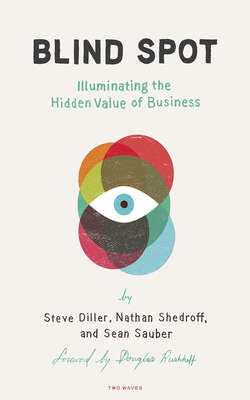Читать книгу Blind Spot - Nathan Shedroff - Страница 18
На сайте Литреса книга снята с продажи.
What Makes a Relationship
ОглавлениеThankfully, not every company needs to be as experience-obsessed as Disney. But your company is in the relationship business, whether you like it or not. People will develop a positive feeling about your company or not. They can be wholly indifferent to you, or love you to the point that they won’t go anywhere else. You can drive value with relationships, or you can ignore both the relationships and the value that comes with them. And, if you aren’t working toward creating a positive relationship, you’re most likely creating a negative one.
Here is how relationships work:
• Relationships are a connection. If you think of how a child feels about Disney, the word “love” jumps to the forefront. In fact, if you think of your favorite brands, you’ll see that you probably care deeply about them because these companies have provided customers with experiences that mattered to them. If you were amazed in a good way by your iPhone 4 and 5, you’ll probably spend money again for an iPhone 6.
• Relationships are based on experiences that people value. In the corporate world, the word experience describes everything from websites to ceiling fans. Experiences are critical because that’s where relationships occur. So they need to be carefully designed. However, focusing on experiences without considering the relationships they enable is short-sighted and can lead companies down a path that doesn’t fulfill their strategies.
For relationship innovation, imagine how people experience things. What happens when you interact with a phone or toy? Do you value that experience? Sometimes the answer is yes; for example, your child has a valued experience when she’s amazed by Disneyland. Other times the answer is no, such as a negative experience when you argue with a customer service representative. Often, you don’t have much of an experience at all when reading a web page while looking for information—but you could.
Valued experiences typically change your state of mind—hopefully for the better. When you feel that a particular shirt makes you look good, it gives you confidence. When your exclusive platinum credit card makes you feel successful, that’s a valued experience.
• Relationships are created over time. Think again about a shirt that you love. Of course, because you love it, you’ll probably order a few more items from the same company. They may also turn out to be satisfying and give you that same level of confidence. You’re hoping that magic will strike again. This, too, is a valued experience. As a result, if they continue to deliver what you like and expect, you start to feel a deeper connection with the company. You stay with them as they change to stay in fashion, and you become partners in an ongoing social journey.
• Not everyone experiences a company the same way, but that doesn’t matter. No two people or interactions are exactly alike, but people’s overall experiences can be remarkably similar over time. Disneyland knows that everyone is going to take his or her own path through its parks—they design for that—but it will largely be similar from an experience standpoint. Businesses need to realize that while they cannot plan exactly how people interact with their products and services, they can work to make sure that key interactions produce great experiences.
• Finally, relationships are strategic, and they involve a long time frame. Their purpose is not to create quick sales, but to make your products or services more valuable to people over time. As a result, consider relationships as a long-term investment. Disney could easily skimp on paint and maintenance and save a good deal of money. Its investors have occasionally asked for exactly that. But that would destroy the magic, which would lessen the experience and, ultimately, the relationship. Over the long haul, this approach destroys the very possibility for the relationship, itself, creating a much bigger problem in the long term.
